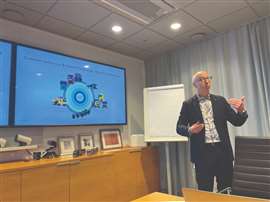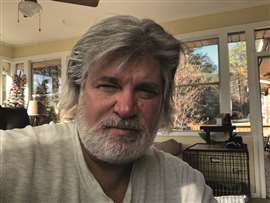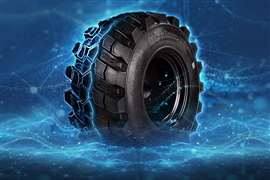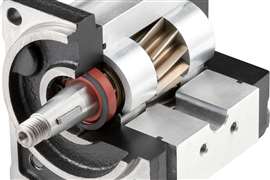Read this article in Français Deutsch Italiano Português Español
Street Smarts: Truck engines for a planet in crisis
25 April 2024
Volvo has gone all-in on alternative powertrain options but hasn’t forsaken the ICE.
In many ways, this is Volvo’s “moment.”
For the bulk of its history as a global engine and truck builder, its unabashed commitment to a clean environment and safety seemed somewhat quaint – at least here in North America.
But the times have caught up with Volvo’s core corporate philosophies. And today, the OEM stands unashamedly at the front of the global drive to reduce truck exhaust emissions on a global scale.
The most high-profile aspects of this effort have been the development of new battery-electric and hydrogen fuel cell propulsion systems for heavy trucks. Naturally, the OEM has spent a lot of time recently promoting those new technologies.
But on a trip to Sweden in early April, Volvo made a point to sit North American transportation journalists down with Volvo Group Chief Technology Officer Lars Stenqvist. And his goal was to remind global truck fleet customers that Volvo remains fully committed to internal combustion engine (ICE) technology. In fact, it foresees a long and productive future for ICEs in trucking applications worldwide.
CAST for creation and integration
Stenqvist heads a team of more than 15,000 engineers worldwide. This global brain trust works on powertrain solutions for Volvo, Mack and Renault trucks, as well as Volvo buses, construction machinery, marine propulsion systems and a growing segment of associated energy systems.
 Lars Stenqvist, CTO, Volvo Group, says the OEM is investing more money than at any time in its history in internal combustion engine technology for trucks. (Photo: Jack Roberts)
Lars Stenqvist, CTO, Volvo Group, says the OEM is investing more money than at any time in its history in internal combustion engine technology for trucks. (Photo: Jack Roberts)
Stenqvist is in charge of a staggering $2.7 billion research and development budget. His team uses Common Architecture and Shared Technology (CAST) to create the cutting-edge products, components and technologies that go into transportation sectors worldwide.
“I want my solutions to be used across the Volvo Group,” Stenqvist said. “New technology that can be used in yellow construction machines, buses and all three truck brands – that is the mindset I want all my engineers to have. This is a recipe we have used for decades, and it has served us very well.”
A critical aspect of this approach, according to Stenqvist, is to design systems and components that can easily integrate into other platforms. Several years ago, Volvo began to electrify buses and, based on CAST, made sure those components could be easily integrated into construction machines or trucks.
“A few years later, we saw the business opportunity to reuse those BEV components from buses on trucks and construction machines,” Stenqvist said. “And that is why we are pioneers in battery-electric trucks today.”
Even as the climate crisis has emerged as a global emergency, the world’s transportation demands continue to grow at an exponential rate.
“At Volvo, we firmly believe the world needs more transportation,” said Stenqvist. “But we cannot just use the solutions we build today. We need technology the planet can cope with.”
Investment in ICE
At the same time, Stenqvist cited a global study of ICE technology conducted by Volvo in 2020. That report concluded that there are not enough biofuel and renewable fuel options available to decarbonize trucking today. That was the main driver behind Volvo’s decision to aggressively pursue battery-electric and hydrogen fuel cell technologies for near-future trucking applications.
Yet, he stressed that does not mean that Volvo has lost faith in the tried-and-true internal combustion engine. “I want to be super clear,” said Stenqvist. “Volvo believes in a long life and a long future for ICEs. And we believe that all three of those technologies (ICE, BEV and FCEV) will be developed and used in parallel by fleets in the future.”
 Jack Roberts is a Tuscaloosa, Ala.-based independent journalist and licensed commercial driver with more than 20 years’ experience covering the North American and global trucking industries.
Jack Roberts is a Tuscaloosa, Ala.-based independent journalist and licensed commercial driver with more than 20 years’ experience covering the North American and global trucking industries.
That’s why today, Volvo is investing more money than ever before in new ICE technology, Stenqvist said, both for diesel fuel and future clean-fuel options. Indeed, Volvo has just introduced a brand-new, 780-hp, 17L diesel for European heavy-haul applications.
Increasingly, decisions on which technologies fleets will use to decarbonize will be made individually and on the local level. “How and where these zero-emission powertrains are used will not be decided by engineers,” Stenqvist said. “Those issues will be decided by society. And there will be different solutions in different applications and in different countries.”
While diesel fuel will remain in the technology mix for some time to come, the obvious drawback – even with synthetic diesel fuel – is NOx emissions.
“That is why we must have a good dialogue with politicians and educate them on the drawbacks and benefits of these technologies,” Stenqvist insisted. “Far too many politicians are trigger-happy. They want to ban technologies instead of telling us what they want us to achieve.”
All options on the table
Looking even farther into the future, Stenqvist said ICEs running on hydrogen could be an excellent clean fuel option for future truck fleets.
“We need to have broader technology palettes to explore all of these solutions and offer our customers the best solutions for the jobs they need to do,” he continued. “That is why we think we need to develop all of these technologies in parallel. Because in one region, hydrogen fuel cell vehicles might work best. And in another region, battery-electric trucks may provide the best solution. And in another, our new 17L engine running on synthetic diesel will be a very attractive option.
“We must keep all options on the table to provide transportation solutions our customers can rely on, while moving forward toward our zero-emission future.”
|
POWER SOURCING GUIDE
The trusted reference and buyer’s guide for 83 years
The original “desktop search engine,” guiding nearly 10,000 users in more than 90 countries it is the primary reference for specifications and details on all the components that go into engine systems.
Visit Now
STAY CONNECTED




Receive the information you need when you need it through our world-leading magazines, newsletters and daily briefings.
CONNECT WITH THE TEAM












